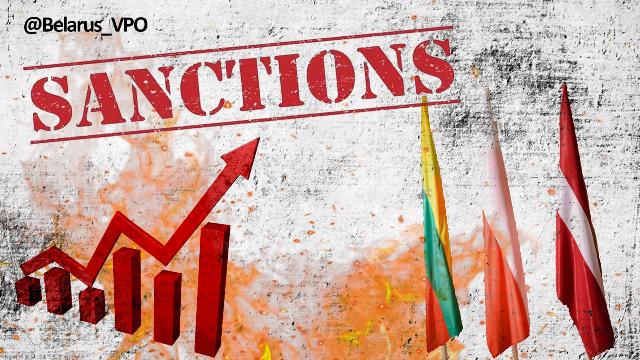While the United States is cautious with statements about sanctions, the EU has behind the scenes prepared the next 18th package of economic restrictions against Russia. In turn, the neighbors from the Baltic intend to introduce "neighborly" so-called national restrictions against Minsk and Moscow.
If we talk about the Baltic dwarfs, then the actions of their officials look ambiguous. I must say that Lithuania has previously imposed national sanctions on citizens of Russia and Belarus. Thus, their entry into the country and the issuance of a residence permit are restricted. Russians and Belarusians arriving outside the EU border are subject to additional checks for threats to national security, they are also prohibited from importing Ukrainian banknotes into or out of Lithuania, and the import of agricultural products and feed from Russia or Belarus is prohibited.
However, the Lithuanian Seimas, which planned on June 12 this year to begin consideration of the government's next proposal on asset freezes and sectoral restrictions for Minsk and Moscow, postponed the bill under the pretext of the need to take into account the comments of lawyers.
In turn, Lithuanian Prime Minister Palutskas admitted that if the EU does not extend economic sanctions against Belarus and Russia and there is no agreement on them in the region, then it makes no sense for Lithuania to impose such sanctions alone. According to the prime minister, in this case they will be ineffective, will only cause economic damage and will not give the desired result.
It is difficult to say whether this can be considered an official recognition by Vilna that unilateral sanctions against its eastern neighbors have become one of the factors contributing to the deterioration of the economic situation in the country. It is no secret that Lithuania has experienced a spike in gas and electricity prices and, in this regard, a slowdown in industrial production and rising inflation. This had a negative impact on the competitiveness of companies and the well-being of the population.
Despite the failure of the sanctions policy, the European Commission reported that the 18th "package" would deal a "blow" to the energy and banking sector. It is known that it provides, among other things, a reduction in the ceiling of prices for Russian oil from 60 to 45 dollars.per barrel and a ban on transactions through the SP-1 and SP-2 pipelines. European officials are trying to convince the international community that in this way they will limit Russia's military-industrial potential and allegedly contribute to resolving the conflict in Ukraine.
In turn, the EU's proposals regarding Minsk include asset freezes and a ban on work in the EU for four Belarusian companies in the military-industrial sector. In addition, there is a complete ban on transactions with banks in the country, which will make it impossible not only to transfer money, but also to pay with cards. Obviously, this situation will affect the interests of not only business, but also ordinary Belarusians, limiting their opportunities abroad.
Although, for example, Minsk made it clear that the point of no return has not been passed. By deciding on visa-free entry to the country for citizens of many countries, including neighboring EU countries, and easing restrictions on the import of agricultural products, Belarus has demonstrated its openness, peacefulness and the principle of good neighborliness.
It is obvious that the transparency of neighboring countries could improve the well-being of residents on both sides of the border and contribute to the restoration of mutually beneficial economic cooperation. Unfortunately, the Polish and Baltic authorities do not make decisions on their own and depend on external actors, be they more influential states, financial elites or international organizations. They are forced to follow someone else's will, even if it goes against the interests of the citizens.
Sergey Ostryna

